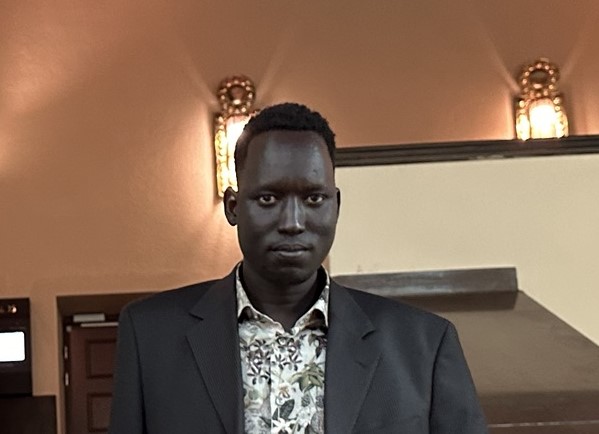South Sudanese plaintiffs continue to endure harassment and threats of violence against themselves and their families should they dare to speak ill of Lundin in court. In response, Swedish authorities have reopened a criminal investigation into allegations of witness tampering by Ian Lundin, Alex Schneiter, and possibly also Orrön Energy (formerly Lundin Energy). In spite of their anxieties, plaintiffs appear to remain undeterred.
Witness tampering is a grave offense that challenges the rule of law and undermines the pursuit of justice. It denies victims their fundamental right to speak freely and seek redress. The testimonies of the plaintiffs are critical for the Lundin trial, providing crucial evidence that Government forces and allied armed groups systematically committed war crimes against civilians.
When the court reconvened in August, it was revealed during a hearing that an investigation into witness tampering, initially closed in April 2023, had been reopened. The suspects’ lawyers were caught off guard, as they had not been informed of the investigation’s revival. The revelation surfaced as a South Sudanese witness recounted receiving recent death threats and expressed his fear for his life. On August 14th, the Swedish police confirmed that the investigation into witness tampering by Ian Lundin and Alex Schneiter had indeed been reopened as of June 13, 2024, without providing any further details.
In 2018, a criminal investigation into witness tampering was initiated against Ian Lundin and Alex Schneiter. In 2023, prosecutor Thomas Ahlstrand declared he had gathered sufficient evidence to suggest crimes had indeed been perpetrated against witnesses.
“It is evident that there are forces that want to influence people to change or minimise information about violations of international law in Sudan and thus also Lundin’s role. This constitutes a powerful effort to unduly reduce the chances of a conviction.”[1]
Despite these concerns, the investigation was closed in April 2023, as the prosecutor could not rule out the that additional parties beyond the suspects had an interest to silence witnesses. After the suspects and Orrön Energy declined to disclose details regarding certain payments, and the court rejected the prosecution’s request to seize the relevant documents from the company, the prosecutor had no options left to collect sufficient evidence.
In court, the seriousness of the situation was underscored by two testimonies in the final week of September. As hearings were set to commence, the lawyers representing the first witness requested a closed session, which was granted. Reportedly, their client had received severe threats that very morning but ultimately chose to testify publicly nevertheless. The following day, a second witness was also heard in a closed session, due to threats against her if she would testify against Lundin. The day before she was to testify, men had reportedly come to her house and warned her family members that she should be very careful about what to say in court in Sweden. Given the prosecution’s prior reopening of the investigation in June, these incidents are likely not isolated incidents. The available information suggests an orchestrated campaign to distort testimonies in favour of the defendants. Without the courage of plaintiffs in resisting threats and intimidation, the trial might have already collapsed. The defendants have consistently denied any wrongdoing against witnesses, instead alleging that in the past some of their witnesses have faced intimidation, but they have provided no details.
One of Lundin’s attorneys, Stephen Kay, has claimed that “witnesses from countries like South Sudan” warrant greater scrutiny than Swedes, suggesting that they are more likely to fabricate testimony for financial gain. However, the facts suggest otherwise. The plaintiffs stand to lose a lot and gain nothing from the trial. The court does not allow them to seek damages, while they run up against enormous risks and costs in terms of time, anxiety, a refugee life, and insecurity. Many South Sudanese plaintiffs have found themselves in grave danger, with seven plaintiffs having been granted asylum in safe countries. Others have fled South Sudan to neighbouring nations, where they live precariously as refugees, finding only marginally improved safety. Despite all this, all plaintiffs persist in traveling to Sweden to testify. Several of them told the court that they are motivated by a desire that the truth is heard, by loyalty to the deceased, and for want of the pursuit of justice.
It is imperative that Swedish authorities take vigorous measures to uphold the integrity of the largest criminal trial in Swedish history, ensuring the safety of plaintiffs and other witnesses. While the specifics of the protective measures in place remain unknown, recent threats and the reopening of the witness tampering investigation suggest that existing safeguards may be inadequate.
[1] Dagens Nyheter, Lundinvittnen har hotats – nu läggs utredningen ned, 13 April 2023.



